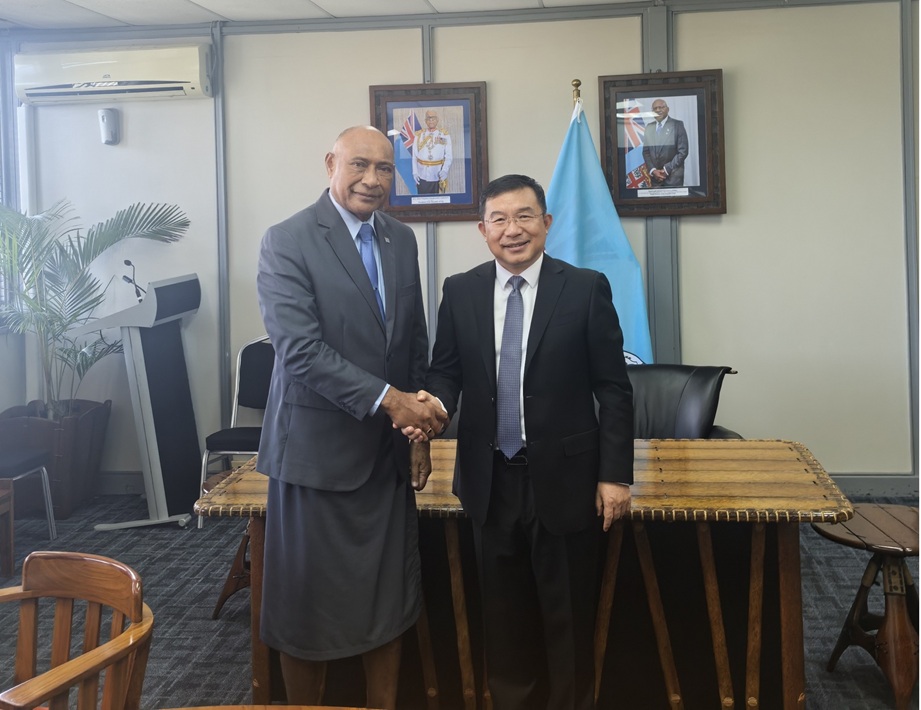Fiji and China have enjoyed an interesting relationship for nearly two decades.
When the 2006 coup happened and our traditional Western partners turned their backs on us, it was China that stepped in. Since then, Beijing has been one of our closest diplomatic and economic partners.
But Chinese friendship comes with conditions, despite their assurances that it does not.
For example, Fiji is not allowed to recognise Taiwan, a country of over 20 million people, as a country. Taiwan’s presence here has been reduced to just a trade office.
Chinese officials also make it very clear that they do not want Joseph Chow referred to as “Ambassador.” In the past, Taiwan’s national day celebrations have erupted in fist fights between officials of the two countries (look it up).
One of the most visible parts of our relationship is the visa-free deal.
Introduced in 2015 under the FijiFirst government, it allows Chinese citizens to enter Fiji without a visa for up to four months, and gives Fijians the same privilege when visiting China. At the time, it was sold to the public as a way to boost tourism, trade, and people-to-people links. On paper, this sounded like a win for both countries.
To no one’s surprise, organised crime has soared since this was introduced.
Just in recent days, five Chinese nationals were arrested in Fiji for allegedly running a major methamphetamine operation. This is not an isolated case. Law enforcement across the Pacific has long warned that organised crime groups linked to China are active in the region.
International reports have also connected Chinese companies to the export of chemicals used to make dangerous synthetic drugs. Some of these companies have even faced legal action overseas for supplying substances used in the production of fentanyl and methamphetamine.
If this is the reality, then Fiji must ask itself: is the visa-free deal helping everyday Fijians, or is it creating risks? We are told tourism is the main reason, but tourists can just as easily come on short-term tourist visas. That system would still encourage genuine visitors while giving authorities a chance to screen out people who may have other motives.
When we look at the benefits, it is not clear how much this policy has really done for us. How many jobs has it created? Has it boosted our tourism numbers enough to justify the risks? Or has it opened the door to crime that hurts our communities more than it helps our economy?
Internationally, agencies such as the US Drug Enforcement Administration have shown evidence that Chinese companies are deeply involved in supplying the chemical ingredients needed for synthetic drug production.
While the Chinese government denies direct involvement, there are reports that these companies have been allowed to operate with little oversight. The result is that the Pacific, including Fiji, becomes part of the trafficking chain whether we like it or not.
This is not about blaming the Chinese people as a whole. Many genuine tourists and businesspeople from China contribute positively to our country. But good policy must balance openness with protection. Fiji has every right to ask whether our visa-free deal has been designed with enough safeguards.
Moving forward, there are several things we should consider.
First, reviewing and possibly renegotiating the visa arrangement. We can still welcome Chinese visitors, but with proper checks.
Second, strengthening our customs and immigration systems so we can better catch those who seek to use our country as a hub for illegal trade.
Third, ensuring that Chinese businesses operating here are fully transparent and compliant with our laws.
Fiji is a small country, but we are not powerless. We can choose policies that welcome visitors while protecting our communities. We can remain friends with China, but on terms that keep our people safe.
The visa-free deal was introduced with the promise of boosting tourism and trade. A decade later, it is time to ask hard questions. Is it still serving the national interest, or is it exposing us to dangers we cannot afford?
The Chinese Embassy in Suva has officially issued a statement urging its nationals to follow Fiji’s laws. However, given China’s media record — including the recent jailing of a journalist for four years for simply sharing COVID-19 videos that challenged the government’s narrative — such statements cannot always be taken at face value.
For Fiji, words alone are not enough. Authorities, especially those serious about combating the drug crisis, must carefully review the visa exemption and provide real answers on whether it is helping or harming our nation.
Until next week, take care and be safe!



